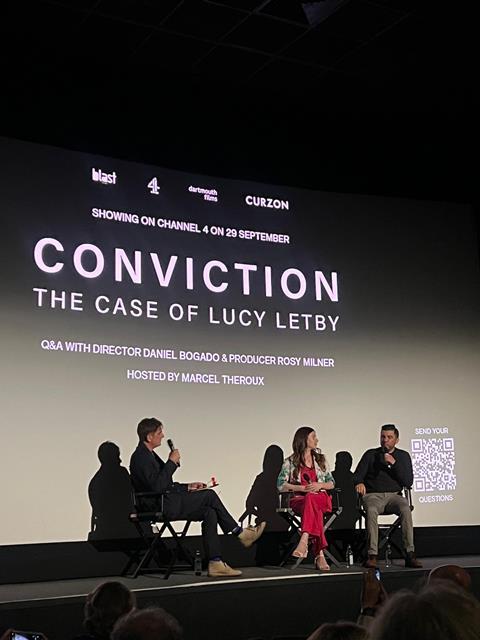
There have been few criminal trials that have elicited such strongly held and opposing views as the case of Lucy Letby.
Former neonatal nurse Letby is serving 15 whole-life sentences after she was convicted of the murder of seven babies and attempted murder of seven more. Doubts over Letby’s guilt have grown since her conviction.
A new Channel 4 documentary Conviction: The Case of Lucy Letby (to be shown on 29 September) aims at neutrality, occupying a grey area between innocence and guilt it nevertheless leans more towards those who believe in Letby’s innocence.
It follows a small number of people, including Letby’s new barrister Mark McDonald, Dr Dewi Evans, the prosecution’s expert witness at trial and Daily Mail journalist Liz Hull who covered the trial, over an eight-month period.
During this time, McDonald, a big presence in the film, gathers experts and evidence to present a case to the Criminal Cases Review Commission. Most of the people interviewed had nothing to do with the original trial.
The documentary is not a deep dive into the criminal process and how Letby was convicted. Instead, it attempts to look more closely at what happened afterwards. It shows experts’ doubt and questions the prosecution evidence from Letby’s post-it notes to each baby’s death as the reasons for them are scrutinised, and alternatives put forward.
Dr Evans’ reactions to that doubt are shown, his views of his own findings reiterated. For every argument put forward, the makers try to show a rebuttal. It makes for interesting viewing.
Little focus is given to Letby herself apart from near the start where McDonald tells of an interaction in which she cried when he told her he believed she was innocent, and near the end where McDonald says he can hear a new note of hope in her voice.
Conviction does not uncover anything new, a potential problem if the CCRC are to refer the case back to the Court of Appeal. It gives us a peek behind the curtain of McDonald’s work to make a CCRC application which he hands in in-person – the climatic ending of the documentary.
This is not a forensic look into Letby’s case but engages more with the swell of the media frenzy and the public fascination that surrounds it. Conviction leans on the questions and opinions that were kicked up from Letby’s trial, choosing to shine a spotlight on an already lit stage. It does well in highlighting those opinions and then leaving the audience to continue the debate. Another voice to add to the multitude.































No comments yet